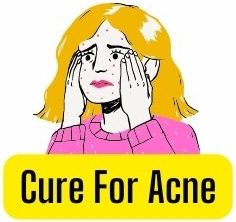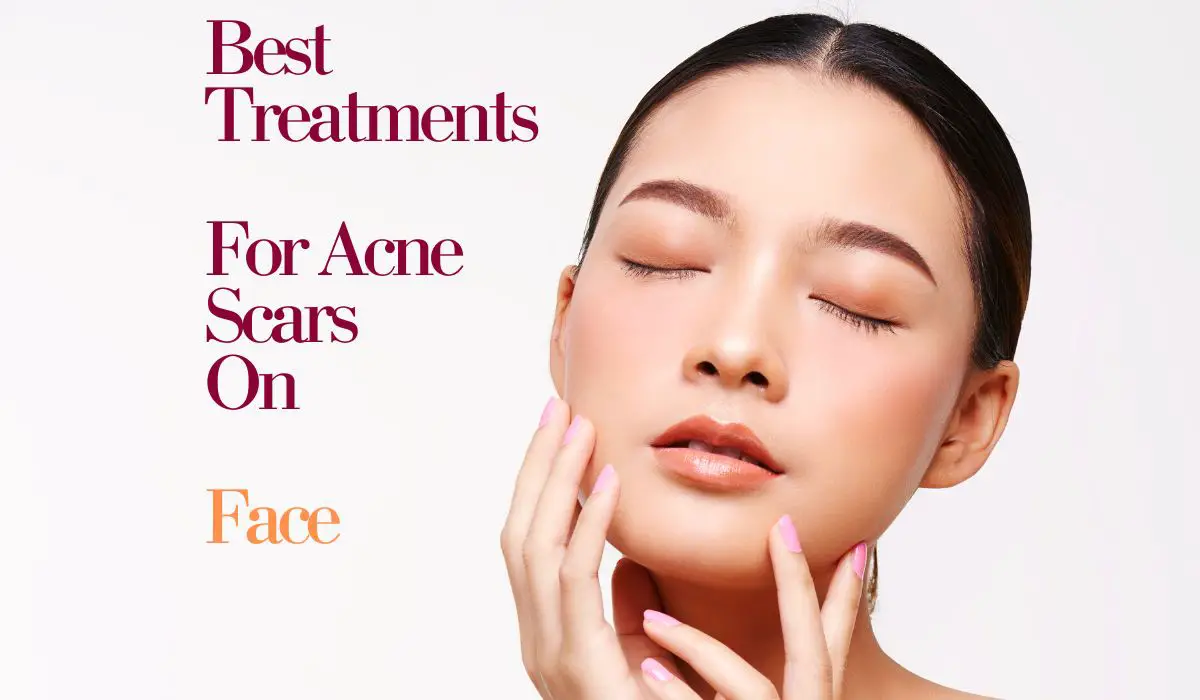Acne scars are a common concern for many individuals, particularly those who have experienced severe acne breakouts in the past. These scars can range in severity and appearance, from deep pits to raised bumps on the skin.
They can be difficult to conceal with makeup and can have a negative impact on self-confidence. Fortunately, there are a variety of treatment options available to help reduce the appearance of acne scars and improve the overall appearance of the skin.
Key Takeaways:
- Acne scars can be caused by inflammation from acne lesions and the act of picking or squeezing acne lesions.
- There are a variety of treatment options available for reducing the appearance of acne scars, including topical treatments, laser treatments, chemical peels, micro needling, and dermal fillers.
- Factors to consider when choosing a treatment include the severity of the acne scars, skin type and sensitivity, cost, and potential side effects.
- The best treatment will depend on the individual’s specific needs and preferences, as well as the severity of the scars and the skin type and sensitivity of the individual.
- It is important to consult with a healthcare professional to determine the most appropriate treatment option.
It is important to understand the causes of acne scars in order to choose the most effective treatment. Acne scars can be caused by inflammation from acne lesions, as well as the act of picking or squeezing acne lesions. This can damage the skin and lead to scarring.
Treatment options for acne scars include topical treatments, such as retinoids, alpha hydroxy acids, beta hydroxy acids, and antioxidants.
Laser treatments, including fractional laser resurfacing, non-ablative laser resurfacing, and ablative laser resurfacing, can also be effective. Chemical peels, micro needling, and dermal fillers are additional options to consider.
When choosing a treatment for acne scars, it is important to consider the severity of the scars, the individual’s skin type and sensitivity, the cost of the treatment, and the potential side effects.
The best treatment will depend on the specific needs and preferences of the individual.
Causes of Acne Scars
Acne scars are caused by damage to the skin as a result of acne lesions. There are several factors that can contribute to the development of acne scars, including:
- Inflammation: Acne lesions can cause inflammation in the skin, which can lead to scarring. This inflammation can be caused by a variety of factors, including bacteria, hormones, and genetics.
- Picking or squeezing acne lesions: Attempting to pop or squeeze acne lesions can further damage the skin and increase the risk of scarring.
- Types of acne lesions that can lead to scarring:
- Cystic acne: This type of acne occurs when the pores become clogged and infected, leading to deep, painful lesions that are more likely to scar.
- Nodular acne: Nodular acne is characterized by large, hard bumps that can be difficult to treat and may leave scars.
- Risk factors for developing acne scars:
- Severe acne: Individuals with severe acne are more likely to develop acne scars due to the increased inflammation and damage to the skin.
- Picking or squeezing acne lesions: As mentioned above, attempting to pop or squeeze acne lesions can increase the risk of scarring.
- Genetics: Some individuals may be more prone to developing acne scars due to inherited factors.
- Skin type: Individuals with thicker, oilier skin may be more prone to scarring from acne lesions.
Treatment options for acne scars
There are several treatment options available for individuals looking to reduce the appearance of acne scars. Some of the most common treatment options include:
- Topical treatments:
- Retinoids: Retinoids are vitamin A-based medications that can help improve the appearance of acne scars by increasing skin cell turnover and promoting collagen production. They are available in a variety of strengths and formulations, including over-the-counter creams and prescription-strength creams, gels, and solutions.
- Alpha hydroxy acids (AHAs): AHAs are exfoliants that can help improve the texture and tone of the skin by removing dead skin cells. They are available in a variety of formulations, including creams, gels, and serums.
- Beta hydroxy acids (BHAs): BHAs are another type of exfoliant that can help improve the appearance of acne scars. They are oil-soluble, so they can penetrate deeper into the pores to remove excess oil and dead skin cells. BHAs are typically available in the form of creams, gels, and serums.
- Antioxidants: Antioxidants, such as vitamin C, can help improve the appearance of acne scars by protecting the skin from damage and promoting collagen production. They are available in a variety of formulations, including creams, serums, and facial masks.
- Laser treatments:
- Fractional laser resurfacing: Fractional laser resurfacing uses a laser to create small, deep columns of thermal injury in the skin. This promotes collagen production and helps improve the appearance of acne scars.
- Non-ablative laser resurfacing: Non-ablative laser resurfacing uses a laser to heat the deeper layers of the skin without damaging the surface. This can help improve the appearance of acne scars by stimulating collagen production.
- Ablative laser resurfacing: Ablative laser resurfacing uses a laser to remove the top layers of the skin, which can help improve the appearance of acne scars. This treatment is more aggressive and typically requires a longer recovery time.
- Chemical peels: Chemical peels use a chemical solution to remove the top layers of the skin, which can help improve the appearance of acne scars. There are different types of chemical peels available, ranging in strength and depth of penetration.
- Micro needling: Micro needling involves using a device with fine needles to create small punctures in the skin. This can help improve the appearance of acne scars by promoting collagen production.
- Dermal fillers: Dermal fillers, such as hyaluronic acid, can be injected into the skin to help fill in acne scars and improve the overall texture and appearance of the skin.
Factors To Consider When Choosing A Treatment
There are several factors that individuals should consider when choosing a treatment for acne scars. These include:
- Severity of acne scars: The severity of acne scars will often dictate the most appropriate treatment. For example, individuals with severe acne scars may require more aggressive treatments, such as laser resurfacing or chemical peels, while those with mild acne scars may benefit from topical treatments or microneedling.
- Skin type and sensitivity: It is important to consider an individual’s skin type and sensitivity when choosing a treatment. Some treatments, such as retinoids, can be irritating to sensitive skin, while others, such as chemical peels, may not be suitable for individuals with certain skin types.
- Cost: The cost of treatment can be a major factor in deciding which option to pursue. Some treatments, such as laser resurfacing or chemical peels, can be expensive, while others, such as topical treatments or microneedling, may be more affordable.
- Potential side effects: It is important to consider the potential side effects of each treatment before making a decision. Some treatments, such as laser resurfacing, can have more significant side effects, including redness, swelling, and blistering, while others, such as topical treatments, may have fewer side effects.
Ultimately, the best treatment for acne scars will depend on the individual’s specific needs and preferences, as well as the severity of the scars and the skin type and sensitivity of the individual. It is important to consult with a dermatologist or other healthcare professional to determine the most appropriate treatment option.
FAQs
How do I know if I have acne scars?
Acne scars are typically visible as indentations or bumps on the skin. They may be discolored or have a different texture than the surrounding skin. If you are unsure whether you have acne scars, it is best to consult with a dermatologist or other healthcare professional for a proper evaluation.
Can all acne scars be treated?
Not all acne scars can be completely eliminated, but many can be significantly improved with the right treatment plan. The severity of the scars and the individual’s skin type and sensitivity will impact the effectiveness of treatment.
Are there any home remedies for acne scars?
Some people may find that home remedies, such as using topical products containing ingredients like aloe vera, honey, or lemon juice, can help improve the appearance of acne scars. However, these remedies are not likely to be as effective as professional treatments and may not be suitable for all skin types.
How long does it take for acne scars to fade?
The length of time it takes for acne scars to fade will depend on the treatment being used and the individual’s specific circumstances. Some treatments, such as laser resurfacing, may produce more immediate results, while others, such as topical treatments, may take longer to show results. In general, it can take several weeks to several months for acne scars to fade.
Are there any risks or side effects associated with acne scar treatments?
Some acne scar treatments, such as laser resurfacing and chemical peels, can have significant side effects, including redness, swelling, and blistering. Topical treatments may cause irritation or dryness in some individuals. It is important to discuss the potential risks and side effects with a healthcare professional before beginning any treatment.
Conclusion
Acne scars can be treated with a variety of methods, including topical treatments, laser treatments, chemical peels, micro needling, and dermal fillers. The best treatment will depend on the individual’s specific needs and preferences, as well as the severity of the scars and the skin type and sensitivity of the individual.
It is important to consider all of the available options and consult with a dermatologist or other healthcare professional to determine the most appropriate treatment. While no treatment can completely eliminate acne scars, many individuals experience significant improvement in the appearance of their scars with the right treatment plan.





